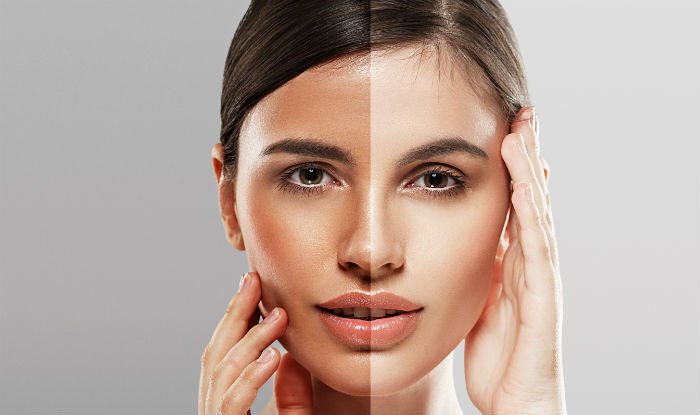Which Is the Best Skin Brightening Cream? Find Out Here!

People associate brightening creams with glowing and flawless skin. According to their manufacturers, these products eliminate dark areas, even out skin tone, and impart a youthful glow to the skin. So, picking the right one from amongst the innumerable options still available on the mass market comes down to determining choices. This article will introduce and define different types and compositions of skin-brightening creams and provide suggestions that are better suited for specific skin types, like dark and sensitive skin.
Understanding Skin-Brightening Creams
Skin brightening creams largely improve the total aesthetic value of the skin by providing active ingredients to fight hyperpigmentation, dullness, and unevenness of skin tone. Since these creams apply their benefits to anyone yearning for that glowing skin, they have high market acceptance among people with dark spots or discoloration.
Key Ingredients of Skin Brighteners
Thus, it becomes very important to study the ingredients while shopping for the best skin brightener. Some of the skin brightening agents are-
Vitamin C: The antioxidant Vitamin C dislodges dark spots and is often used as a skin brightener by inhibiting skin melanin production.
Niacinamide: It is a form of Vitamin B3, one among many forms, showing effective resolution of hyperpigmentation, skin texture improvement, and barrier-strengthening effects on sensitive skin.
Kojic acid: A natural hydroquinone, derived from fungi. Kojic acid deals with making skin spots darker, which is a common ingredient found in depigmenting skin brightening creams.
Arbutin: A naturally occurring agent that works to lighten the skin and remove dark spots by opposing melanin formation, much like kojic acid.
Hydroquinone: A potent bleaching agent, but can be used with extreme caution due to its side effects. Doctors often recommend this under their supervision.
Licorice Extract: Licorice Extract works for skin brightening and fights inflammation due to its soothing properties and thus is often incorporated in formulations for sensitive skin.
Now you know what to look for to select the perfect face cream to brighten skin for your needs.
Top Skin Brightening Creams for Various Skin Types
It’s not easy to land a skin brightening cream for dark skin, but sure, many products are meant specifically for deeper skin tones.
Such cream contains ingredients focusing on hyperpigmentation without irritating the surface.
Recommended Products:
Ambi Skincare Fade Cream: The dark skin tones here offer hydroquinone to cut back dark spots. It also contains moisturizing ingredients so that dryness is relieved ,making it suitable for those who want an even skin tone.
Kiehl’s Corrective Dark Spot Solution: Well-being for the dark-skinned, brightening the skin and improving clarity with vitamin C and white birch extract. Hyperpigmentation and dark spots can be corrected best to be corrected with this product.
2. Brightening Cream for Sensitive Skin
There are skin brightening creams for sensitive skin that should be efficacious, gentle, and devoid of strong chemicals. You will have a better chance of finding hypoallergenic and dermatologist-tested products.
Recommended Products:
CeraVe Skin Renewing Vitamin C Serum: The most tender touch- scoring 10% pure vitamin C and the ceramide complement forms a skin barrier restoration. Firmly packs a bright boost for gentle everyday use.
La Roche-Posay Pigmentclar Dark Spot Corrector: This cream is tested for sensitive skin and fragrance-free. Niacinamide, phe-resorcinol have been incorporated to treat dark spots and general brightness without irritation.
3. Best Skin Brightening Face Cream
For example, while you are searching for the best skin brightening face cream, prefer those with extra hydration and anti-aging properties. A good face cream not just ensures bright skin but keeps it hydrated too.
Here are some product recommendations:
Olay Luminous Tone Perfecting Cream: The long-awaited cream shall even brighten the skin and eliminate any dark spots until they are almost totally gone. There are glycerin and niacinamide, which exist for aiding in skin hydration; thus, it’s for all skin types.
Neutrogena Rapid Tone Repair Dark Spot Corrector: A vitamin C and retinol-containing cream brightens the skin.
4. Cream That Brightens the Skin
Another category of products to consider is those that are simply known as the cream that brightens the skin. These creams often focus on overall luminosity and can be beneficial for maintaining a healthy glow.
Recommended Products:
- L’Oréal Paris Revitalift Bright Reveal Brightening Day Cream: This product has been formulated with Vitamin C and glycolic acid to exfoliate and illuminate the skin. SPF protection also helps to prevent further darkening of existing spots.
- Clinique Even Better Clinical Dark Spot Corrector: Nice product to obscure dark spots from uneven skin tone. The formulation is gentle enough to be used every day. Suited for all skin types and improves overall skin clarity.
Best Skin Brightening Cream for Daily Use
Ideally, the best skin brightening cream for daily use would be lightweight and easily fit into your daily routine for the freshest skin, brightened and protected from environmental stressors.
Recommendations:
Aveeno Positively Radiant Daily Moisturizer: Brightening your skin tone is the process, and this moisturizer has soy extracts to support that process while harboring an SPF to defend the skin from sun damage. It serves the combined purpose of hydrating and protecting.
Tatcha The Dewy Skin Cream: This cream consists of Japanese purple rice age-defying and hyaluronic acid brightening luminizer that gives the effective glow of natural moisture to the skin.
Tips for Using Brightening Creams
The following are some tips to help you derive maximum benefits from using your skin brightening cream:
To maximize the effectiveness of your skin brightening cream, keep the following tips in mind:
- Patch Test First
Before applying any new product to your face, always do patch tests on a small area of skin for any allergic reactions or irritations. This is pretty much important in cases of sensitive skin.
- Apply Regularly
For best results, use your brightening cream daily as part of your skincare routine. Most products recommend using them twice daily for optimum results. When it comes to seeing improvements, consistency counts.
- Sun Protection
Brightening creams often make the skin more sensitive to sunlight. Make sure that a broad-spectrum sunscreen with an SPF of at least 30 is put on the skin during the daytime for additional protection from UV damage. This is specifically important to prevent more pigmentation.
- Patience
This isn’t a process that takes place overnight. Normally, it takes several weeks of application before any kind of substantial improvement can be expected in skin tone. So, one needs a lot of patience and would not be much disheartened if results are not seen immediately.
- Combine with Other Applications
Brightening cream may also be utilized in combination with other aids such as exfoliants or serums, thus generating a synergistic effect. Thus, using a very mild exfoliant to fade out dead skin will allow the brightening cream to penetrate more easily.
Common Questions People Ask
1. Which cream will brighten the skin best for dark skin?
2. Do skin-brightening creams irritate?
3. How long does it take to show results using any brightening cream?
4. Is applying sunscreen advisable during the use of brightening creams?

Isabella Martin
Isbella Martin is a Skincare and Beauty Specialist Content Writer at Glist Beauty Care. She writes clear, research-based blogs on brightening creams, makeup, and skincare routines to help readers choose the best products with confidence. She’s currently studying Cosmetic Science to expand her expertise in skin and beauty car





2 Responses